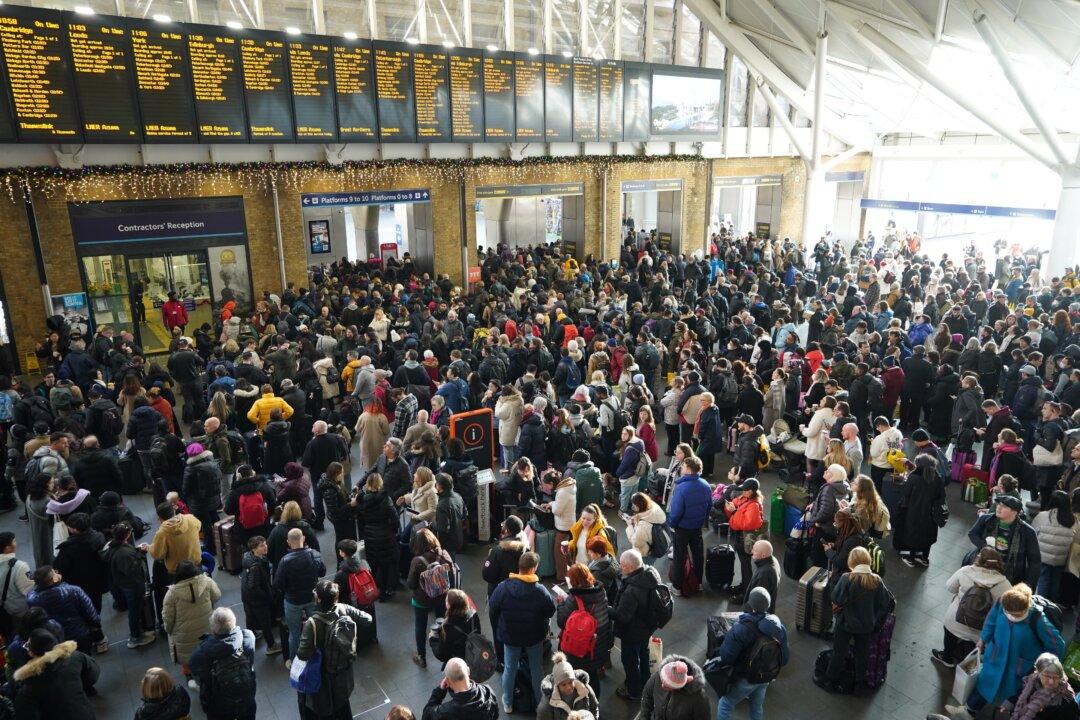British rail passengers have been warned to prepare for “significantly disrupted” travel into the New Year amid a wave of industrial unrest sweeping across the country.
The Network Rail, which owns and maintains the railway infrastructure in England, Scotland, and Wales, has urged people to plan ahead and check before they depart as “industrial action means rail travel will be significantly disrupted throughout December and January.”





